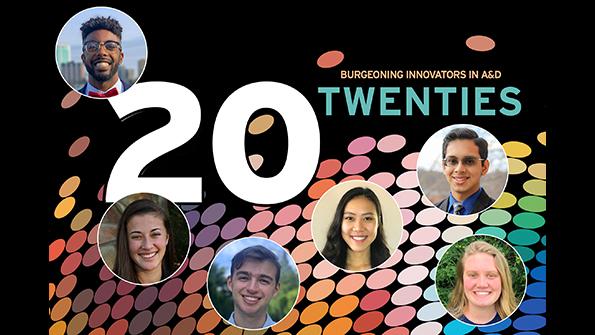
Innovation and new ideas have always been critical to advancement in the aerospace and defense industry, but the COVID-19 pandemic highlighted the importance of embracing change to move forward. Younger, more tech-savvy generations quickly adapted to learning in virtual environments, and some of the most exceptional students even leveraged technologies to effect change during the unprecedented circumstances.
Aviation Week Network’s annual 20 Twenties program recognizes young, rising stars within the aerospace and defense (A&D) industry. Aviation Week collaborates with universities around the world to identify 20 exceptional undergraduate students or those in master’s degree programs who are working to solve challenges within the A&D industry. A panel composed of hiring managers, engineers and academics evaluates and scores nominees based on academic performance, civic contribution and the value of each student’s research or design project.
This year, many of the winners were distinguished by their use of industry technologies to address social problems such as improving access to transportation for physically limited people and improving delivery of crucial resources to people in need. While pandemic restrictions prevented in-person gatherings, some winners used virtual technologies to continue their efforts to mentor fellow students and provide science, technology, engineering and math (STEM) outreach to their communities.
Many of this year’s winners expressed passion for closing the gender gap in STEM and making education more accessible. Some have spent countless hours on outreach efforts to draw more women to aviation and aerospace. Others have focused on increasing racial and economic diversity within STEM, both through involvement in campus organizations and work in their communities.
As suggested by Kriston Ramdass, one of this year’s winners, representation is important in drawing a wider field of people to aviation and aerospace. Ramdass noted that as one of the few minorities in his advanced placement courses, he initially felt out of place. “However, as I grew older, it became clear that I was actually in the perfect position to be an example and a positive influence on those who feel like they did not belong,” he said.
Many of this year’s 20 Twenties also noted the importance of embracing new ideas and perspectives. “The progression of aerospace technologies is dependent on a steady flow of new ideas and approaches that require the involvement of a large body of individuals from a diverse set of backgrounds,” noted winner Daniel Gochenaur.
This year’s winners will be recognized during the 20 Twenties Awards Luncheon and Aviation Week Network’s 64th Annual Laureates Awards on Oct. 18 at the Ritz-Carlton Tysons Corner in McLean, Virginia.
The 20 Twenties program is held in partnership with Accenture, premier sponsor Hexcel and is sponsored by Boeing.
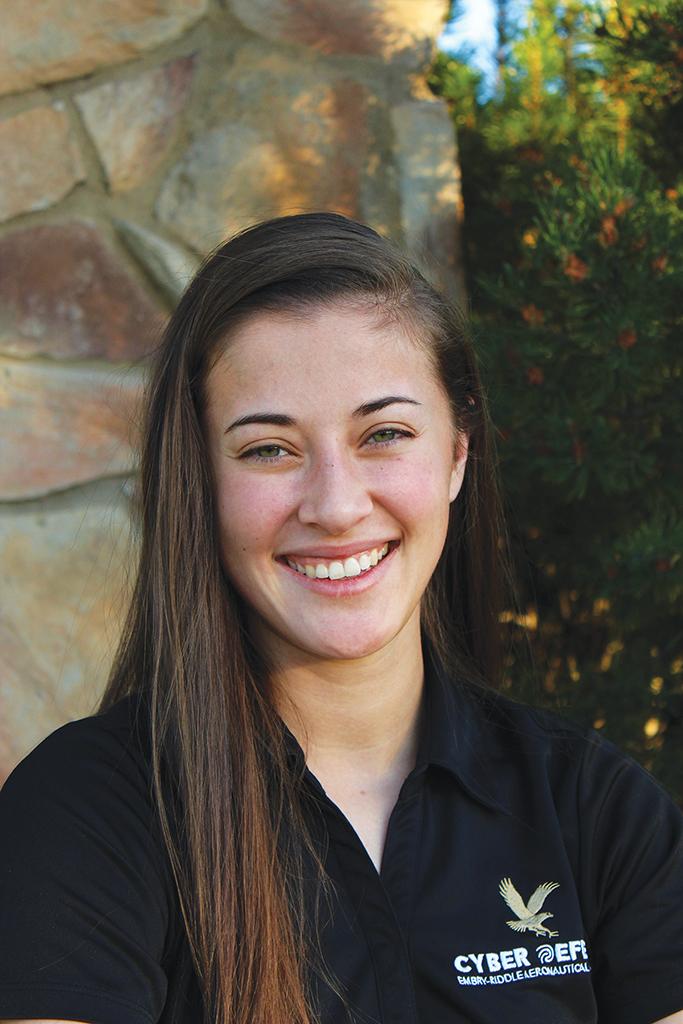
Michaela Adams
B.S. Cyber Intelligence and Security • Class of 2021 • Embry-Riddle Aeronautical University
As part of Adams’ undergraduate research, she served as project manager for Embry-Riddle’s Secure UAS project, which developed ways to prevent transmission of data from spoofed or malicious unmanned aircraft systems. She was president of Embry-Riddle’s Cyber Defense Club and completed cybersecurity and intelligence internships at the Center for International Cyber Intelligence, Disneyland and Garmin International.
In her efforts to close the gender gap in STEM and introduce youth to cybersecurity, Adams was president of Embry--Riddle’s Women in Cybersecurity chapter and a member of her campus’ Women Ambassadors program. She was co-project manager of Embry-Riddle’s first CyberAero competition for local high school students, and she assisted a local Girl Scout troop in obtaining their cybersecurity badges by teaching them at the university’s cyberlab.
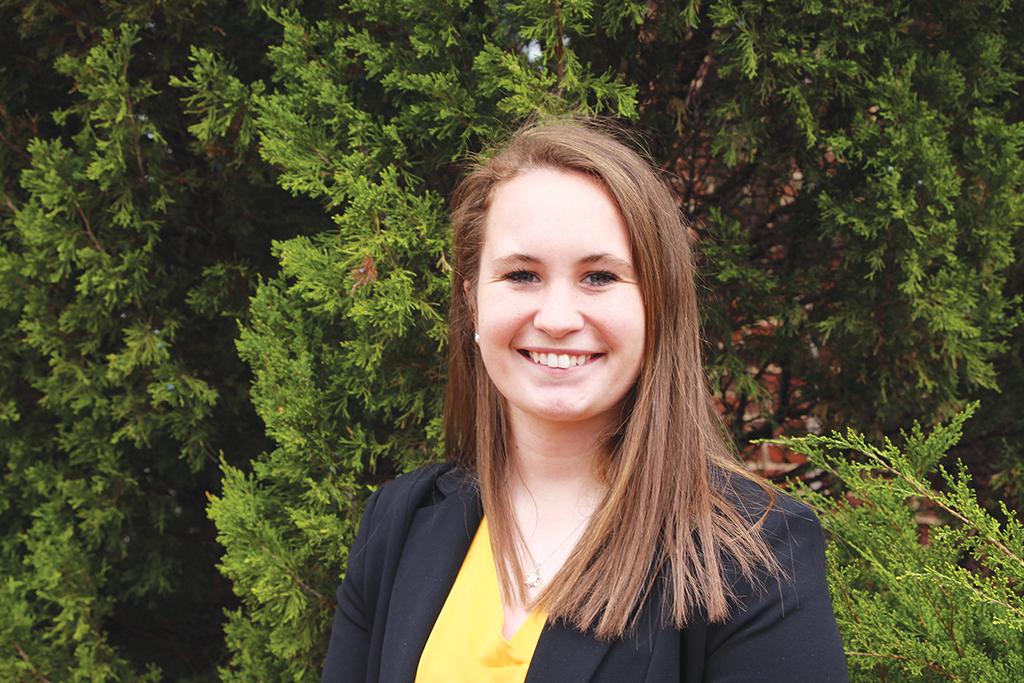
Rachel Cueva
B.S. Aerospace Engineering • Class of 2021 • University of Maryland
Cueva’s undergraduate research was on improving future spacecraft and habitats. Her Gemstone Honors College research on robotic capabilities for operation and maintenance of space habitats won “Best in Theme” at NASA’s Revolutionary Aerospace Systems Concepts-Academic Linkages (RASC-AL) competition and was accepted to the 2019 NASA eXploration Systems and Habitation Challenge, receiving funding and the opportunity to collaborate with NASA engineers to tailor research toward the NASA Lunar Gateway. In independent research, Cueva is studying electrostatic dust lofting on asteroids and the plasma environment in craters.
Cueva interned at NASA Goddard Space Flight Center and Johns Hopkins University Applied Physics Laboratory. She has mentored students in four programs at the University of Maryland and was chair of the university’s student branch of the American Institute of Aeronautics and Astronautics (AIAA). Cueva also won the AIAA 2020 Wernher von Braun scholarship.
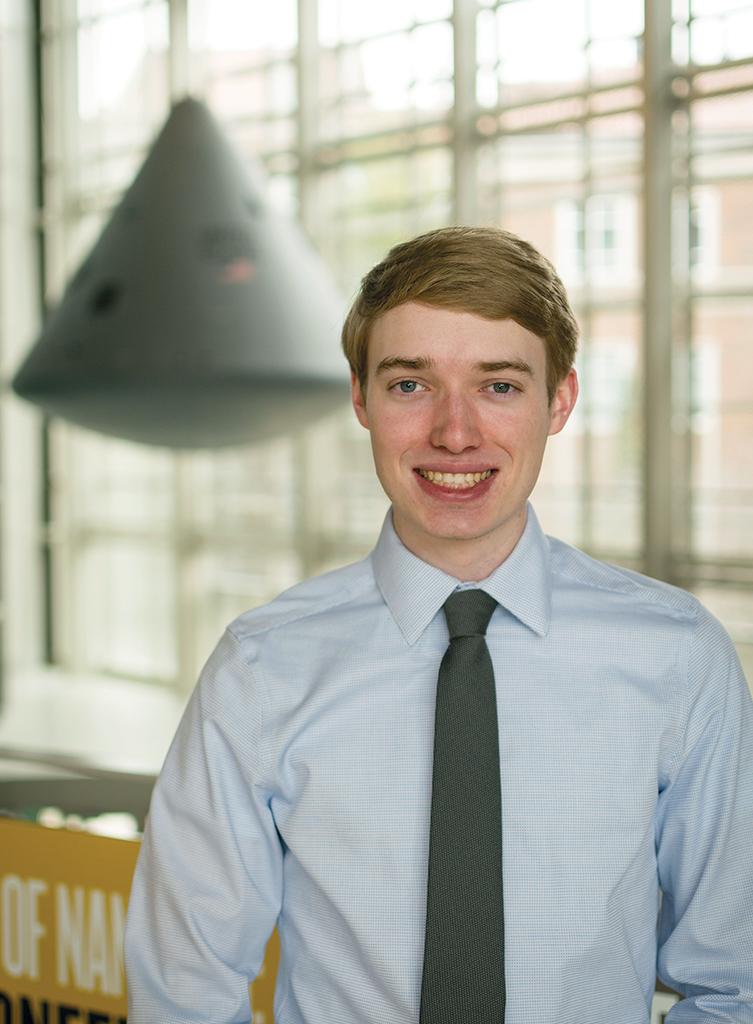
Daniel Gochenaur
B.S. Aeronautical and Astronautical Engineering • Class of 2021 • Purdue University
Gochenaur has completed three internships with the U.S. Air Force Research Laboratory (AFRL), where his team developed conceptual hypersonic vehicles and technologies. His project using modern-day design frameworks to “design” the 1950s-era X-15 hypersonic aircraft won AIAA’s SciTech 2020 Forum’s “Best in Session” award for the Presentation Tools and Processes session. He also interned at Boeing Phantom Works and earned the Churchill Scholarship for future studies at Cambridge University.
As a member of Sigma Gamma Tau’s executive board, Gochenaur led a committee to help students prepare for career entry through resume and interview-skill development sessions, and he planned a panel with representatives of 12 companies and organizations that shared information about their hiring processes. He also volunteered as an activity leader for Dayton Air Camp and Purdue Space Day to help K-12 students learn about aerospace.
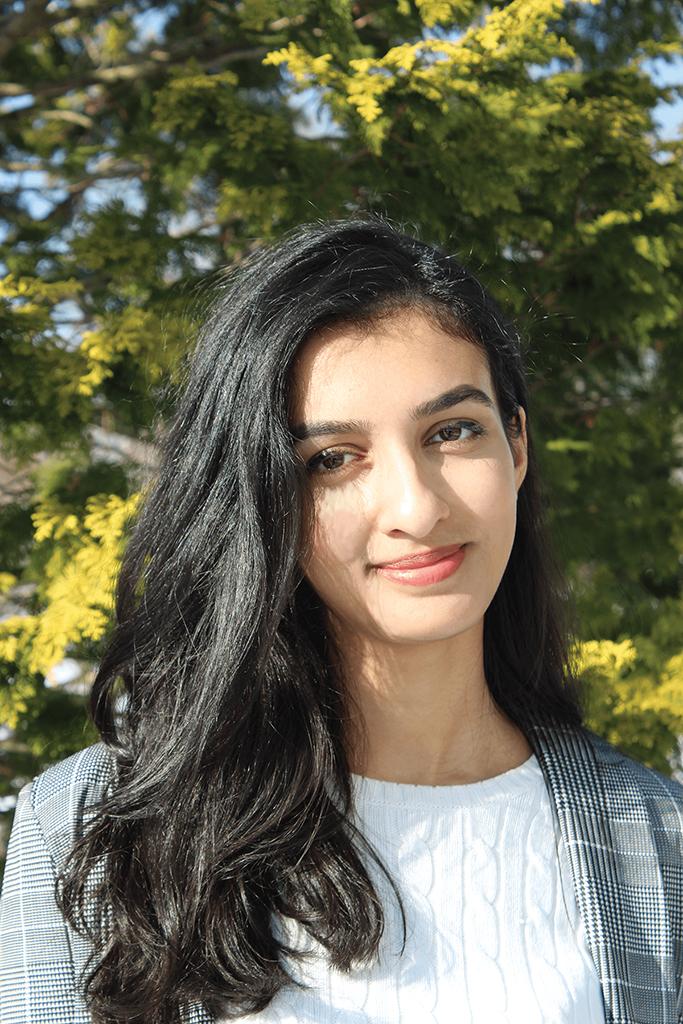
Shreyasvi Gowda
Undergraduate Student, Mechanical Engineering • Class of 2022 • Cornell University
Gowda is collaborating with the AFRL to research the use of polymerized liquid metal networks in fabric for wearable electronics and soft robotics applications. These electronics could be integrated into materials for military uniforms to monitor biometric data. Gowda is also designing and manufacturing a composite airframe for an electric vertical-takeoff-and-landing (eVTOL) vehicle for Cornell University’s Unmanned Aircraft Systems project team, which is building an autonomous search-and-rescue drone to transport medical supplies and resources to isolated people.
Gowda is interning at Joby Aviation through the Brooke Owens Fellowship program, where she hopes to address urban mobility and socioeconomic inequality through improving access to transportation in urban areas. She received the Girl Scout Gold Award for developing a STEM afterschool program for children from underserved gender and socioeconomic demographics.

Niloy Gupta
Dual B.S. Aerospace Engineering and Mathematics • Class of 2021 • University of Maryland
As the flight systems lead and test pilot for the University of Maryland’s (UMD) experimental advancing blade concept project, Gupta helped to design an electric coaxial helicopter with a variable center-of-gravity control system. He developed the control algorithms and code to run the helicopter, which placed third at the 2019 AIAA Regional Student Conference. He was a member of UMD’s Design Build Fly team and the recipient of AIAA’s Daedalus 88 Scholarship.
Through his participation in UMD’s Entrepreneurship and Innovation Honors Program, Gupta worked with his team to design a self-driving apparatus to help physically handicapped individuals gain transportation independence. As a member of the Tau Beta Pi and Sigma Gamma Tau honor societies, he has tutored fellow college students and performed volunteer work to clean gardens on campus and feed the homeless.
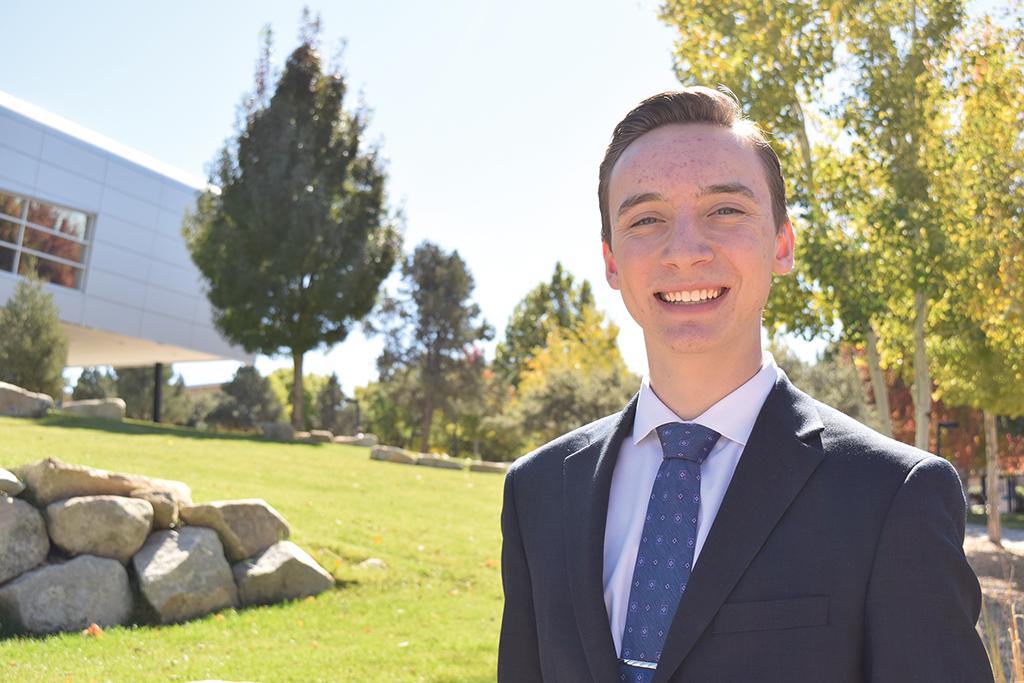
Logan Hill
Undergraduate Student, Aerospace Engineering • Class of 2022 • Embry-Riddle Aeronautical University
Hill is researching how different process patterns affect the strength and stiffness of aerospace parts that are 3D-printed using fused deposition modeling. His research into which infill patterns create the most strength could help enable 3D printing to be used in more aerospace applications, such as for components in satellites or aircraft structures. Hill also led a team in the 2021 NASA RASC-AL competition to develop a design for a manned mission to the surface of the dwarf planet Ceres.
In addition to volunteering as a tutor, Hill has led several service projects as president of his chapter of the Sigma Chi International Fraternity, including cleaning local parks and raising money for cancer research. He also led pandemic-related service projects such as donating canned goods to food banks that were experiencing strain and writing letters to isolated elderly individuals.
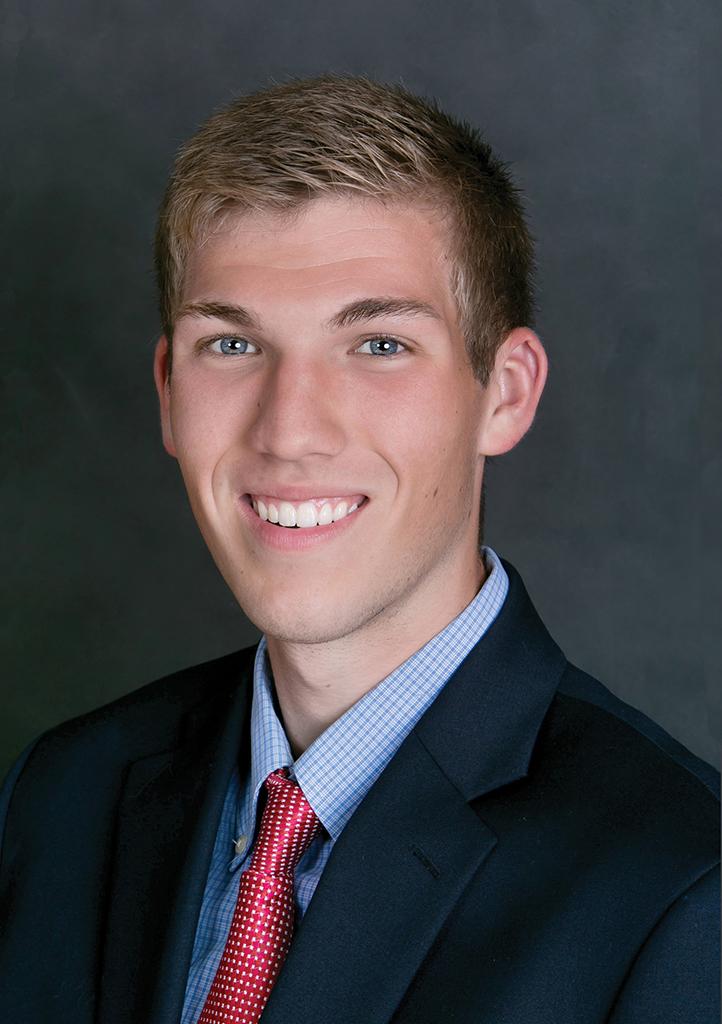
Oscar Klempay
M.S. Aerospace Engineering • Class of 2021 • Georgia Institute of Technology • B.S. Aerospace Engineering • Class of 2020 • Georgia Institute of Technology
Klempay has leveraged his participation in the U.S. Air Force Reserve Officers’ Training Corps (ROTC) to give back to his community while working toward his long-term goal of becoming a test pilot. He served as Wing Commander for his Air Force ROTC detachment, where he mentored younger cadets and participated in dozens of service events. After studying Russian abroad in Latvia and Lithuania through an ROTC scholarship, he began volunteering at a local refugee resettlement agency to translate for Eastern European families acclimating to life in the U.S.
Klempay worked part-time at the Air National Guard Program Office during graduate school, where he developed an algorithm to optimize flight-test planning for electronic warfare testing. He also earned a private pilot license and interned at NASA Ames Research Center and SpaceX. Post-graduation, Klempay will attend the Euro-NATO Joint Jet Pilot Training Program.
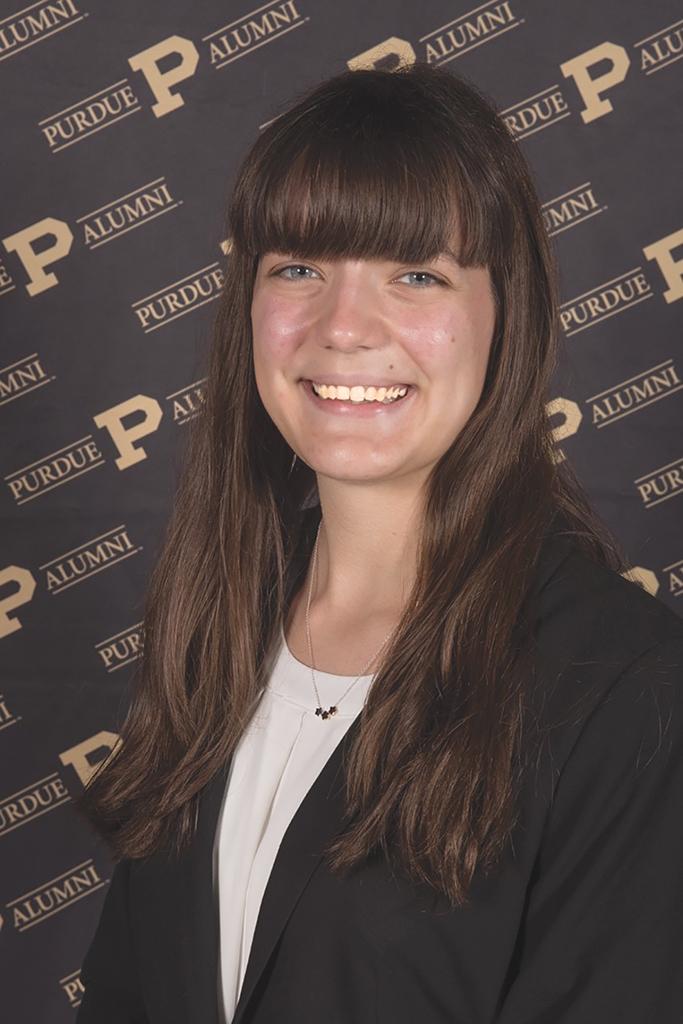
Caroline Kren
Graduate Student, Aeronautics and Astronautics • Class of 2022 • Purdue University • B.S. Aeronautical and Astronautical Engineering • Class of 2020 • Purdue University
Kren is working to increase diversity in STEM through leadership in several initiatives and organizations at Purdue University. As president and outreach chair of Purdue’s Women in Aerospace organization, Kren increased undergraduate member involvement by 15% and co-founded a student organization to increase women in STEM through cross-departmental collaboration. She served as outreach board assistant for the Society of Women Engineers and ambassador for the Aerospace Graduate Women’s Gathering.
As a graduate research assistant at Purdue’s Zucrow Laboratories, Kren is helping to test propulsion devices for aerospace companies. She co-led the test campaign for an engine cycle heat exchanger, and she is supporting a nuclear-thermal exhaust device test campaign. Kren has completed two co-op rotations at NASA Marshall Space Flight Center and interned at Blue Origin and GE Aviation.
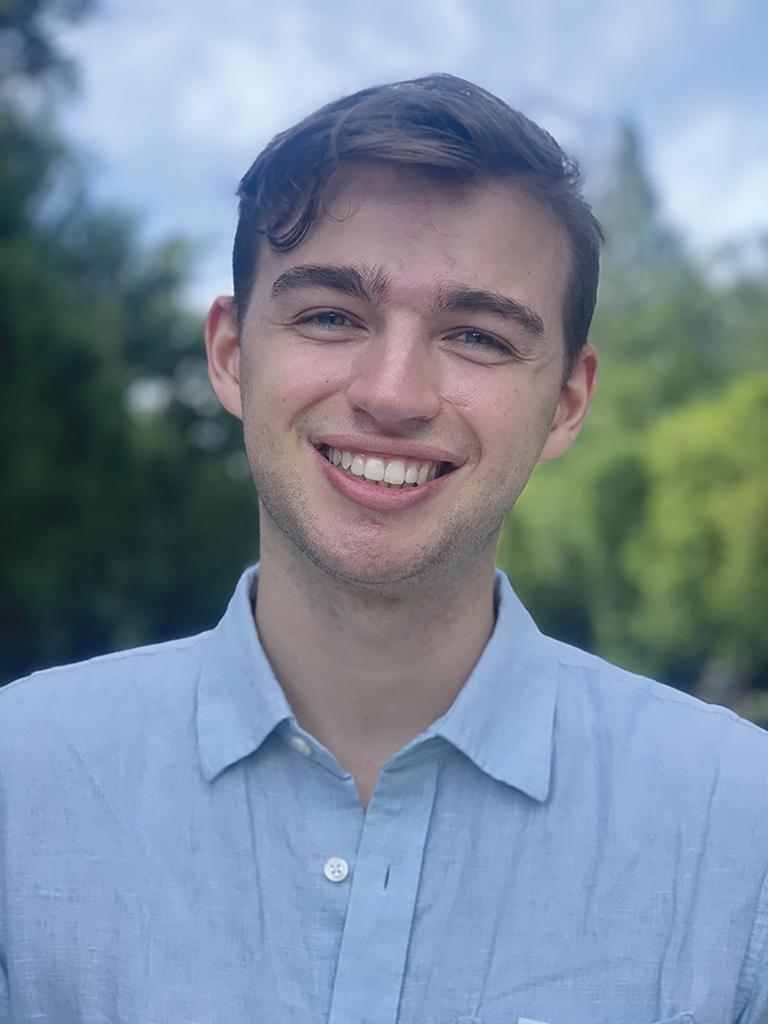
Justin Lidard
Graduate Student, Mechanical and Aerospace Engineering • Class of 2022 • Princeton University • B.S. Aerospace Engineering • Class of 2020 • University of Maryland
Through a National Defense Science and Engineering Graduate Fellowship, Lidard is working to solve problems in flight control. His research is leveraging artificial intelligence to develop a new class of intelligent control algorithms that will allow teams of UAVs to communicate and learn from each other in uncertain flow environments. Lidard has also completed internships at Aurora Flight Sciences and Johns Hopkins Applied Physics Laboratory.
His passion for making education more accessible led him to volunteer as a tutor during his undergraduate studies and with the Prison Teaching Initiative, teaching STEM courses to incarcerated people. Lidard was team captain of UMD’s ballroom competition team, where he mentored dancers and instructed free weekly dance classes for the community.
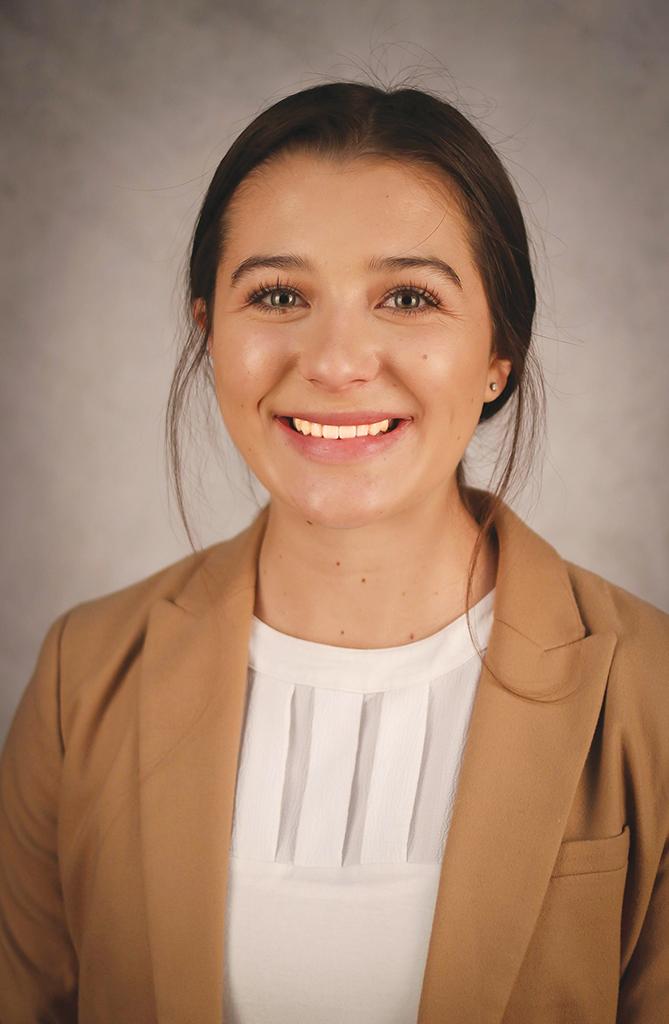
Emma Markovich
B.S. Aerospace Engineering • Class of 2021 • University of Colorado-Boulder
As project manager for the Weight Analysis for Surveillance Pods (WASP) Project, Markovich led a team of 10 students to design, manufacture and test a way of upgrading and streamlining the process of determining the weight and center of gravity of underwing aircraft pods. In addition to her technical contributions, she managed the relationship with WASP’s sponsor, Sierra Nevada Corp.
Markovich has interned at Ball Aerospace, Boeing, Lockheed Martin and SpaceX. She was vice president of her Chi Omega sorority chapter and volunteered as its director of academics and scholarship, where she tutored and mentored new sorority members. Markovich also volunteered as a peer mentor to a first-year aerospace engineering student and as a language partner for international students through the university’s Access and Inclusion Peer Mentorship program.
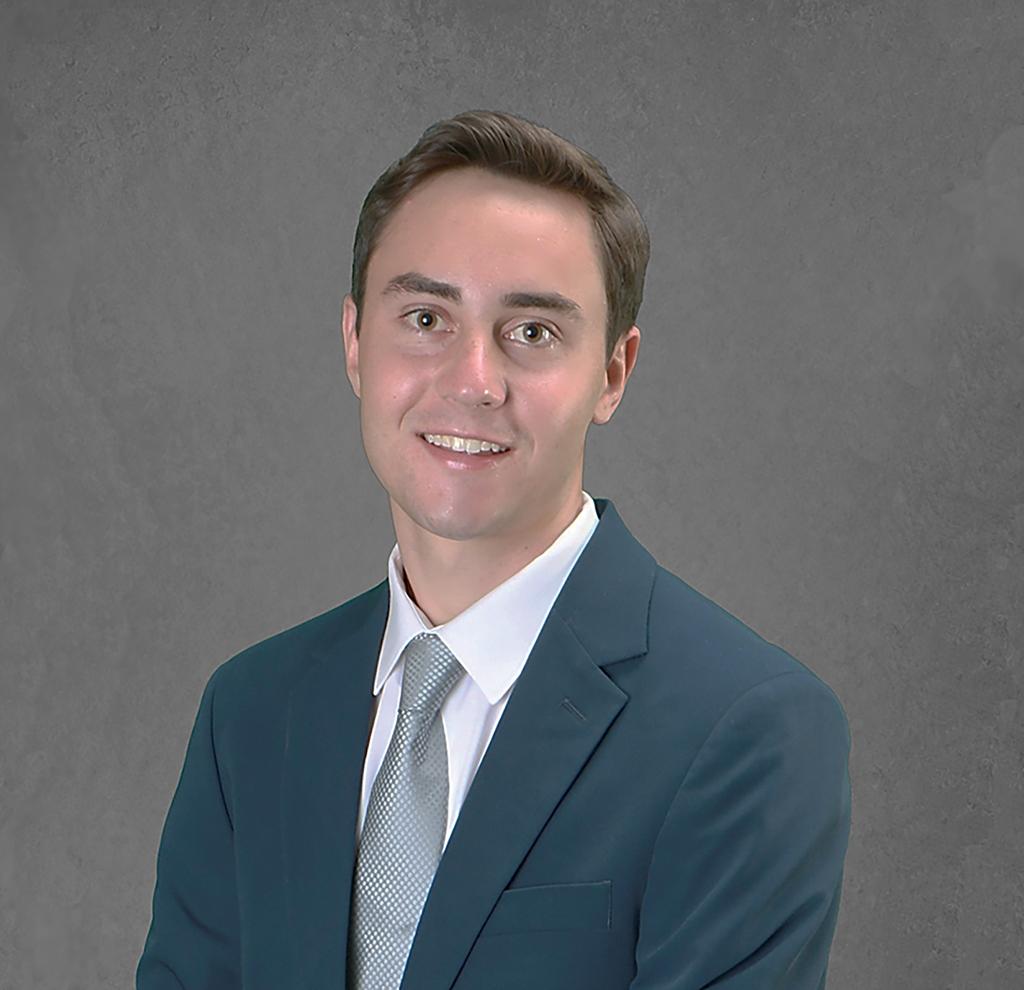
Zachary Marshall
Dual B.S. Aeronautical and Astronautical Engineering; Aerospace Financial Analysis • Class of 2021 • Purdue University
Marshall is translating his aerospace research into real-world solutions to improve the delivery of needed community resources. His research into mitigating the frequency and severity of drone separation conflicts is aimed at safely integrating drones into the National Airspace System, which could help enable electrically powered aircraft to deliver medicine, food and cargo. Through his undergraduate coursework, he created a digital tool for nonprofit Meals on Wheels to optimize meal delivery routing and scheduling.
Marshall has interned at American Airlines, NASA and Republic Airways. He also was president of Purdue’s chapter of AIAA, where he arranged community outreach events to promote youth interest in aerospace, including interactive seminars to teach children how to design, build and test flight vehicles.
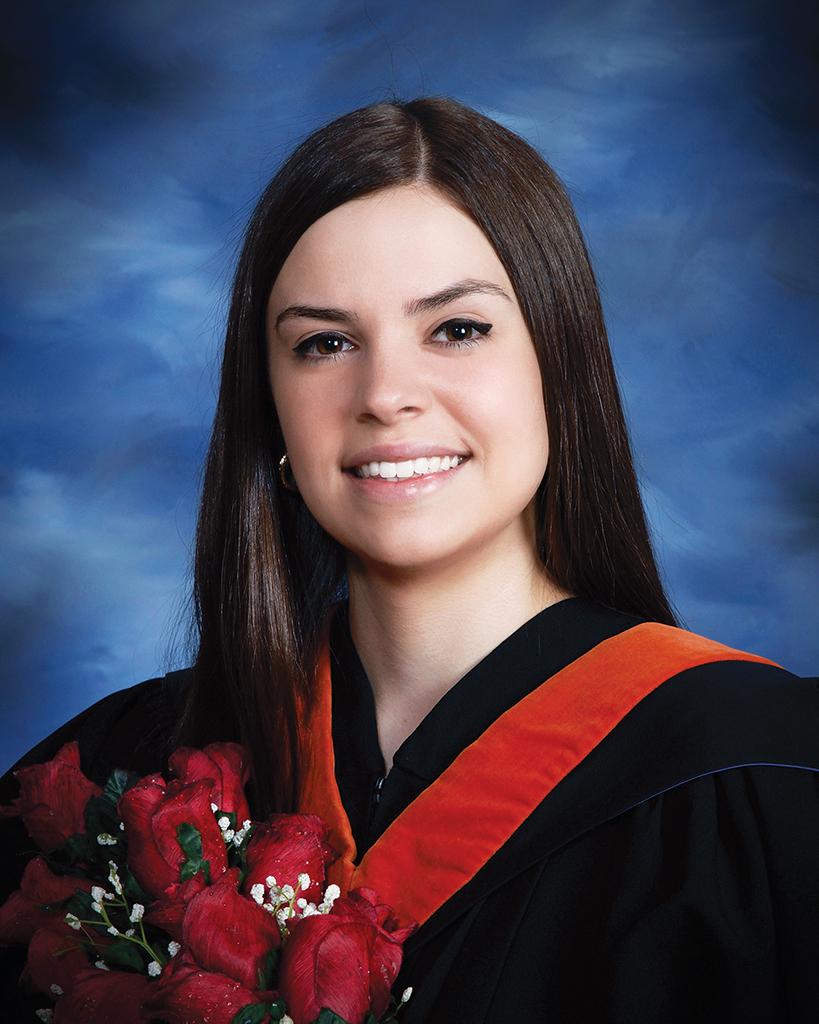
Madeline McQueen
Graduate Student, Aerospace Engineering • Class of 2022 • Ryerson University • BSc Mechanical Engineering • Class of 2020 • University of Windsor
McQueen hopes to become a force for change in making the aviation industry more sustainable. As part of her graduate research at the National Research Council’s Gas Turbine Laboratory in Ottawa, Canada, she is comparing the performance of an on-ground hybrid-electric propulsion system in a serial configuration using different mission profiles and flight conditions. The system could eventually be used to predict the performance and range of battery technologies on future hybrid-electric aircraft.
McQueen completed multiple co-ops at Fiat Chrysler Automobiles Canada, where she aided lab testing of vehicle systems and components. She has held multiple elected positions at the University of Windsor Engineering Society and helped the Ontario Network of Women in Engineering to organize and plan its “Go ENG Girl” event, which provided adolescent and teen girls the opportunity to explore the engineering field.
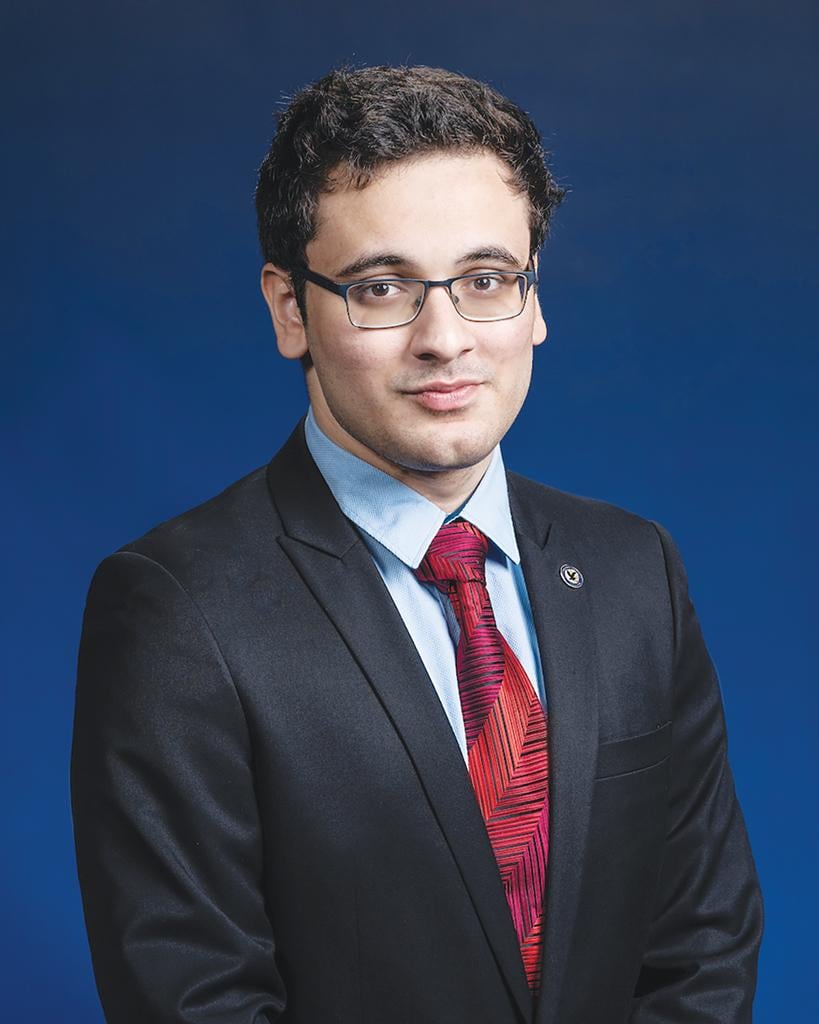
Shlok Misra
Graduate Student, Data Science and Aeronautics • Class of 2022 • Embry-Riddle Aeronautical University • B.S. Aeronautical Science • Class of 2020 • Embry-Riddle Aeronautical University
Misra’s graduate research is aimed at developing visual aids and cockpit technologies for general aviation pilots to prevent unstable approaches. Using flight data from training aircraft at Embry-Riddle, he developed a model to predict unstable approaches and warn pilots to initiate a go-around. The research will benefit Embry-Riddle’s flight-training quality assurance projects and improve safety for the general aviation segment.
Misra has worked toward improving diversity within aviation through several initiatives at Embry-Riddle, including launching Aero-Dicals, a free magazine distributed at local high schools. As editor--in-chief, he leads a volunteer staff in producing content aimed at fostering interest in aviation careers among local youth. Misra is a certified pilot and flight instructor, and he has interned at FlyDubai and Empire Aviation Group.
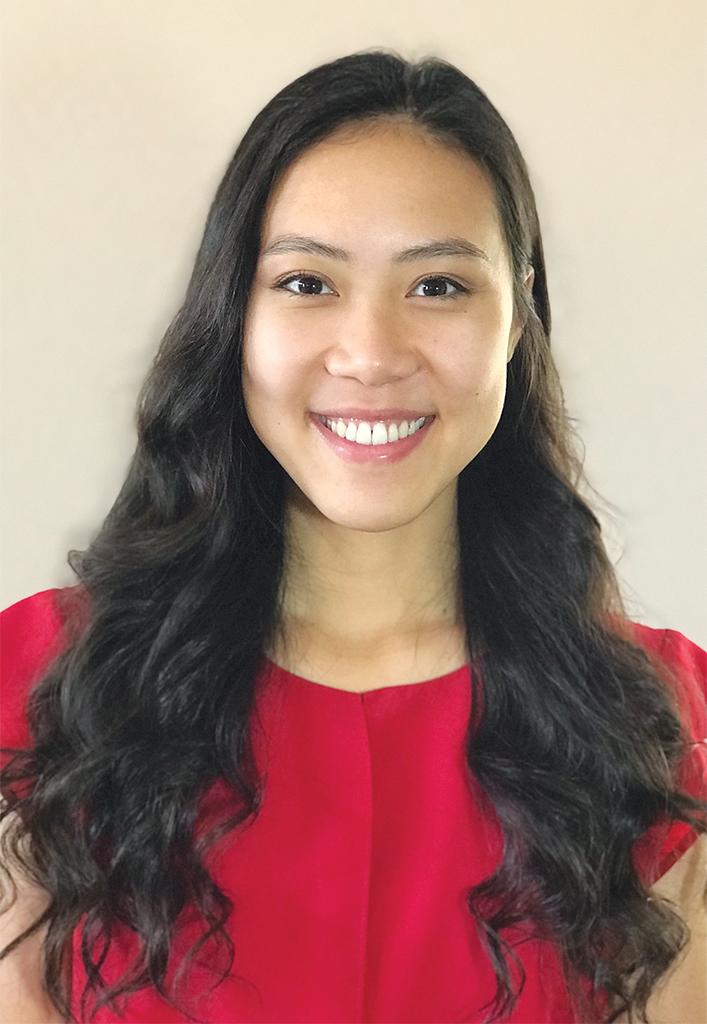
Julie Pham
Graduate Student, Aerospace Engineering • Class of 2022 • University of Texas at Austin • B.S.E. Mechanical Engineering • Class of 2020 • Arizona State University
Pham is working to apply digital-twin technology for future aircraft platforms, which can be used to leverage real-time data for more informed predictions about a vehicle’s state. Through her graduate research, she is developing a novel sensing strategy for predictive digital twins for aerospace vehicles. She is working on a NASA University Leadership Initiative project to support development of scientific machine-learning methods to apply this strategy to hypersonic vehicles. Pham also completed three internships at Sandia National Laboratories.
Her passion for increasing representation of women in aerospace has driven her to support students as a university tutor and teaching assistant. She is president of the Graduate Ladies of Aerospace and Mechanics organization at the University of Texas-Austin, for which she organizes speakers, events and mentorship opportunities.
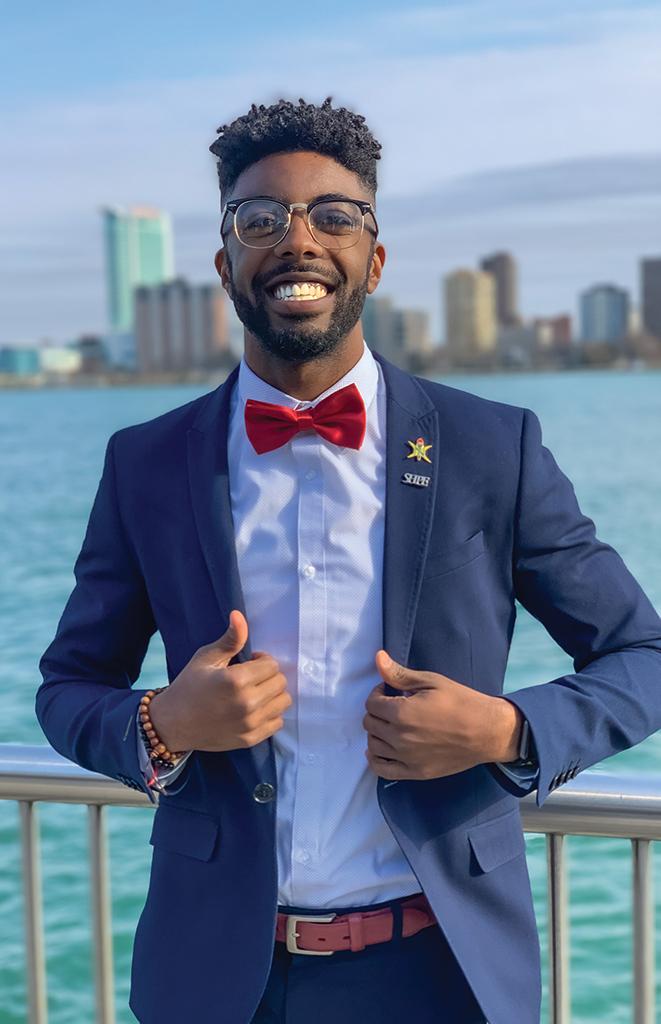
Kriston Ramdass
M.S. Aerospace Engineering Class of 2021 • Pennsylvania State University • B.S. Aerospace Engineering • Class of 2020 • Pennsylvania State University
Pennsylvania State University faculty believe Ramdass’ research will be vital to enabling electric propulsion for small satellites. He is developing a surface-wave plasma thruster as a more efficient and effective method of electric propulsion that is replicable and less expensive. He has interned at SpaceX, Blue Origin, Momentus Space, Boeing and Moog Space and Defense.
As a minority in STEM, Ramdass is passionate about leading by example and being a positive influence for underrepresented populations. He was a lead mentor in Penn State’s Multicultural Engineering Program, which supports underrepresented minority students, as well as a career envoy and engineering ambassador for the College of Engineering. He is a member of the National Society of Black Engineers and serves on the executive board of the Society of Hispanic Professional Engineers.
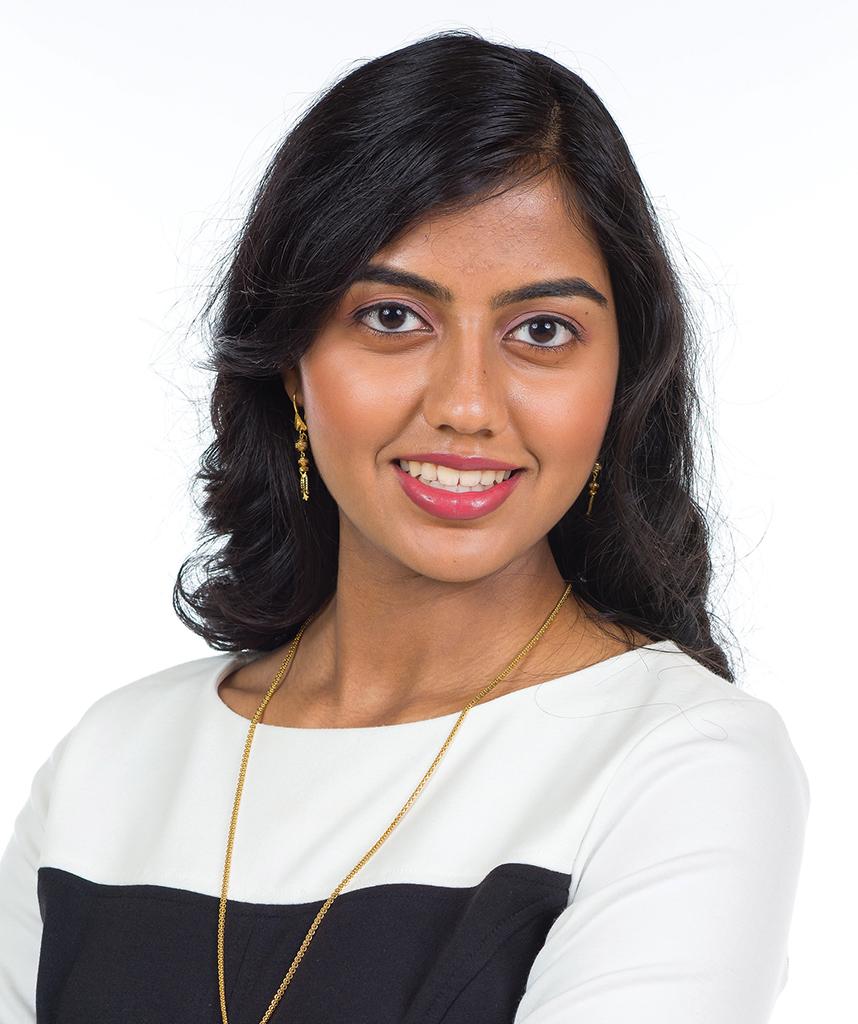
Swati Ravi
Undergraduate Student, Physics • Class of 2022 • Columbia University
As project co-lead for the NASA-funded Characterizing Antibiotic Resistance in Microgravity Environments (CARMEn) experiment, Ravi’s research will serve as a foundation for future aerospace biomedical technologies. The experiment is slated to fly on SpaceX 24 to study how the growth and antibiotic resistance of pathogenic microorganisms in space are influenced by interactions with each other and the microgravity environment. Ravi is overseeing a team of 25 students, managing the project’s NASA grant and communicating with NASA and Nanoracks for safety reviews.
Ravi also is co-president of the Columbia Space Initiative, where she has developed virtual aerospace lesson plans and lecture series for K-12 students during the pandemic. Before the transition to virtual learning, she organized two full-day aerospace workshops for middle school students. She teaches weekly math classes to K-12 students and has developed an astronomy curriculum for several local Girl Scout troops.
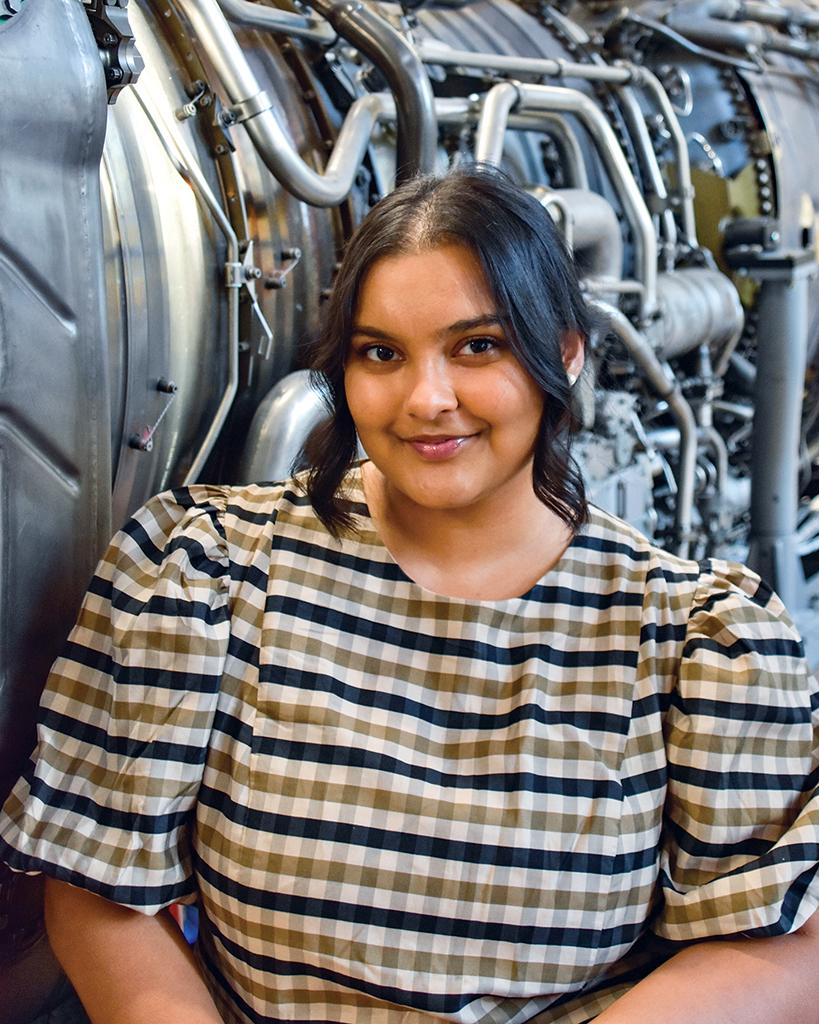
Rikhi Roy
Graduate Student, Aerospace Engineering • Class of 2022 • Georgia Institute of Technology • B.S. Aerospace Engineering • Class of 2020 • Georgia Institute of Technology
Roy’s research project aims to expedite time to market for the NASA X-57 experimental aircraft. She is developing a structured framework for compliance testing and regulatory requirement verification prior to certification for novel vehicles. She also has developed algorithms for the FAA to evaluate aircraft braking performance on contaminated runways and to apply aircraft geospatial data to improve arrival profile modeling.
The diversity and inclusion chair for Women of Aeronautics and Astronautics, Roy also founded SheLAEDs, Singapore’s first conference for women leaders in aerospace; Udaan, a platform for international students in aerospace; and an initiative at Georgia Tech featuring monthly international student speakers. Roy is a recipient of the Brooke Owens Fellowship and serves as a peer mentor through multiple programs.
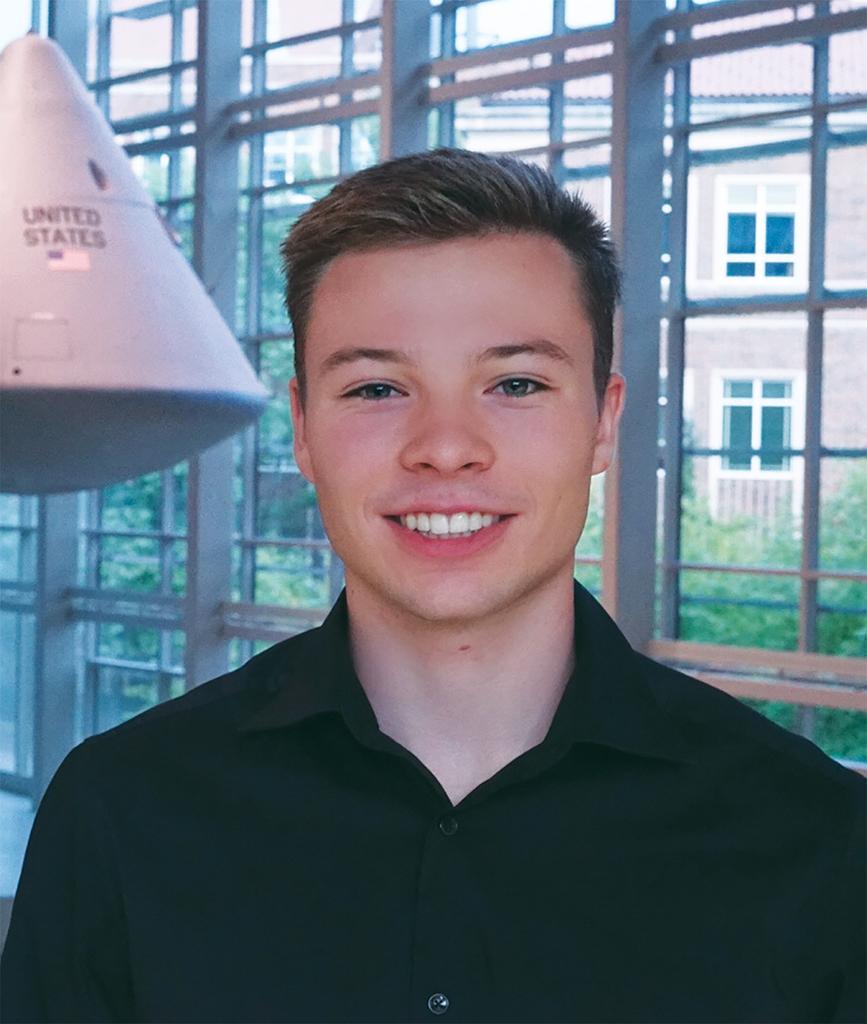
Ryan Strelau
Graduate Student, Aerospace Engineering • Class of 2022 • Purdue University • B.S. Aerospace Engineering • Class of 2020 • Purdue University
Strelau is applying his passion for extending humanity’s reach in space to development of advanced propulsion systems. He is researching laser-based ignition of rocket engines in space environments to develop better industry understanding of complex physics in vacuum conditions. His research has potential applications in both space travel and defense platforms, such as missiles, ramjets and scramjets.
As a member of Purdue’s chapter of Students for the Exploration and Development of Space (SEDS), he was technical lead for the Liquid Rocket Project, which created the first student-built, fully cryogenic, liquid oxygen-liquid methane rocket engine. He is involved in STEM initiatives to teach K-12 students about space and has tutored students whose primary language is not English at Purdue’s Writing Lab. Strelau has also interned at Aerojet Rocketdyne.
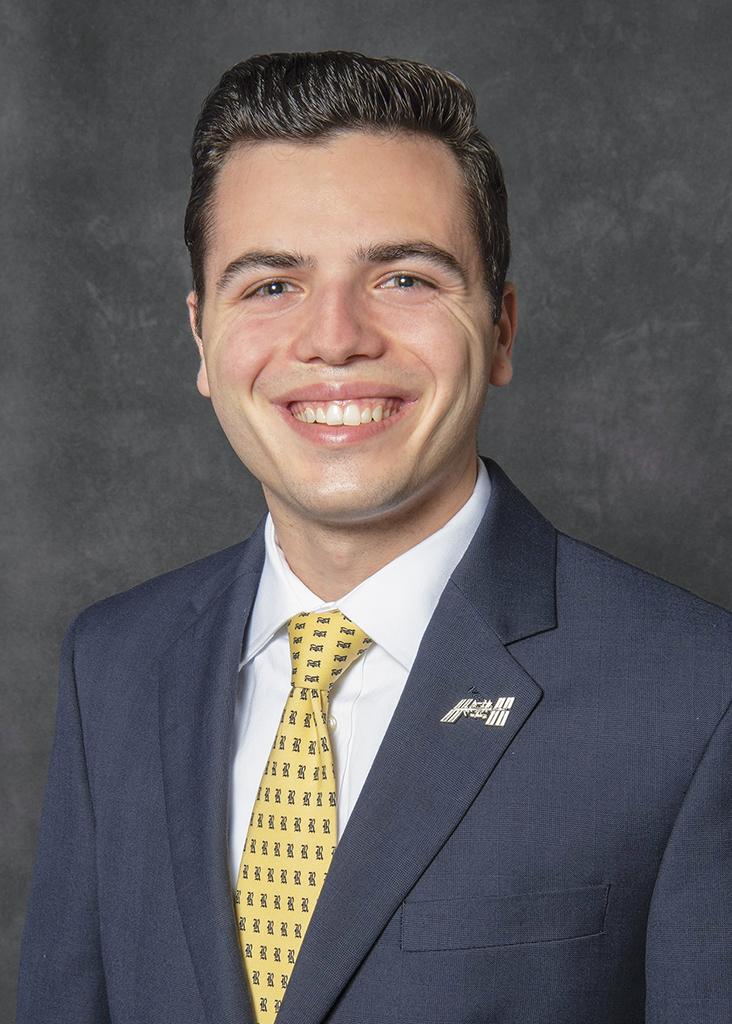
Ryan Udell
B.S. Mechanical Engineering • Class of 2021 • Rice University
Udell established the first student-led project at Rice University to develop and build a cubesat. The OwlSat project aims to track the extreme ultraviolet radiation from the Sun and use machine learning to develop a more accurate low-Earth-orbit orbital model for future satellite companies. The project was selected for the NASA CubeSat Launch Initiative in 2020, and OwlSat is slated to launch in the spring of 2022 on a Firefly Alpha.
As president of Rice University’s chapter of SEDS, Udell has launched several aerospace symposia and career fairs. Inspired by the civil rights movement during the summer of 2020, he co-founded the Zed Factor Fellowship, which aims to encourage underrepresented students to pursue aerospace careers through internships and community engagement.
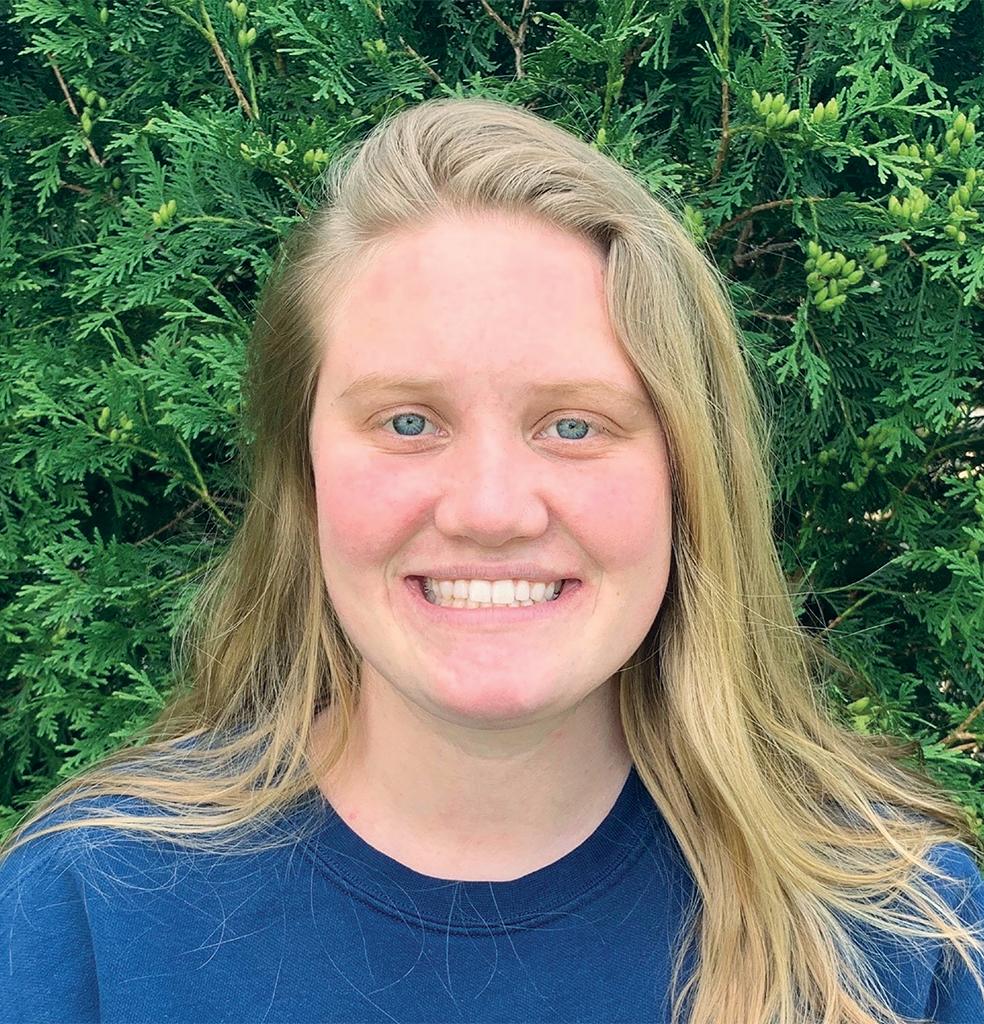
Emily Williams
B.S. Aerospace Engineering • Class of 2021 • University of Illinois Urbana-Champaign
Williams’ research into the science behind hypersonic vehicle reentry led to her becoming the first recipient of the Scott R. White Aerospace Engineering Visionary Scholarship. As an intern at GE Aviation, her work helped to expedite development of GEnx-1B engines, and as an intern at Boeing, she contributed to digital and array electronic product design for the Boeing Satellite Development Center.
Williams is president of the Women in Aerospace (WIA) student organization on her campus, and she created a WIA development committee to improve retention of women in aerospace engineering through outreach efforts. She has developed several courses at the university, including a new engineering course to introduce students to satellite development research opportunities on campus. Williams is lead tutor at the Center for Academic Resources in Engineering, and she mentors students through the Illinois Leadership Center.
20 Twenties Judges
Kevin Duda
Group Lead for Space and Mission Critical Systems, The Charles Stark Draper Laboratory
Lee Ho-Jun
Research and Development Engineer, NASA Johnson Space Center
Daniel Jensen
Head of Engineering for Services, Propulsion and Power, Rolls-Royce
Conor Keenan
Director of Product Management, Matrix and Reinforcements, Hexcel
Joe Landon
Vice President of Advanced Programs, Lockheed Martin
Karen Marais
Professor, Purdue University
Cary Martin
Director of Research and Technology, Global Fibers, Hexcel
Laura Richard
Mission Manager, United Launch Alliance
Donna Thomas
Production Specialist, Aviation Week Network
